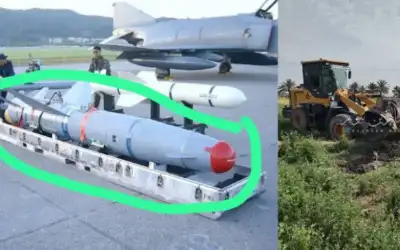More lessons to be learned in Syria
نيسان ـ نشر في 2017-04-12 الساعة 15:57
.
HaHasan Abu Nimahsan Abu Nimah
Hasan Abu Nimah
jordantimes
The chemical attack in Syria last week caused revulsion around the world.
The horrific scenes of dozens of innocent people, including children, helplessly fighting for their lives only emphasise the need for the carnage in Syria, in its sixth year, to end.
Neither the use of banned chemical weapons nor the indiscriminate killing of civilians is happening in our region for the first time.
Currently, wars and sporadic violence in Libya, Yemen, Iraq and Palestine, as well as in Syria, are claiming innocent lives on daily basis.
They are also forcing millions to suffer where they are or to flee their homes for safety, and sometimes face even graver suffering as refugees.
It may sound cruel, but it makes little difference to the victims whether they die by nerve gas, under the debris of their houses, shattered by bombs dropped from the sky or sprayed with bullets.
It is cynical of the so-called international community to only be saddened and moved to action when the death of 80 innocent civilians occurs by nerve gas in Khan Sheikhoun, while other kinds of weapons destroyed millions of lives for years.
I cannot imagine the numbers of those killed in the many wars that struck the region in the past decades: the Arab-Israeli wars, Gaza, Lebanon, Iraq in 1992, Iraq in 2003, Afghanistan, the Iraq-Iran war, and the wars waged right now.
Still, the chemical attack in Syria deserves all the attention and condemnation it received.
Calls to hold the perpetrators to account and international actions to prevent a recurrence are always required.
The Security Council did convene last week to discuss the issue, but as it often happens, it failed to come up with a credible plan, not only because any council action would be blocked by possible Russian veto but also because most of the governments had already passed judgement before there was even an investigation: they — and a massive media onslaught — blamed the government of Syria for the attack.
Rather than rely on veto protection, both Syria and its Russian ally would have done much better if they demanded a swift, credible and thorough international investigation into the chemical attack, with an advance pledge to offer the investigators all needed cooperation and to commit to accept the findings.
Neither the Russian claim of Syrian regime innocence, nor the others’ assertion, that the Assad regime was the culprit, has any credible value without a neutral, authentic investigation.
The veto enjoyed by the five permanent members of the UN Security Council has hamstrung efforts to resolve many international conflicts — the most to use it is the US, to shield Israel from accountability for its occupations, aggression and crimes.
Regrettably, one of the consequences of the recent Security Council inaction towards the Khan Sheikhoun chemical attack was the US missile strike on a Syrian airbase that the US alleges was used to carry out the chemical attack.
It is not clear how military action in such a confused scene could help reduce the raging violence, particularly when so isolated.
TV pictures, on the other hand, showed that the hit base suffered little damage and its runway was unscathed, but the swift American response did have obvious political value for President Donald Trump who immediately drew praise from across the political spectrum
Still, the attack lacked UN approval and was carried out without even the pretence of an investigation into the case.
In the midst of the complex Syrian situation, the US could not have done more, however.
The dilemma is that the US aim of eliminating terrorist groups, Daesh in particular, requires Syrian government cooperation, or at least not targeting it at the same time as the terror groups.
During his campaign, Trump himself said he believed that fighting Assad and Daesh at the same time was “madness and idiocy”.
Only two weeks ago, Secretary of State Rex Tillerson and US ambassador to the UN Nikki Haley hinted that the removal of Assad was no longer a US priority. The emphasis would instead be on fighting terrorists, obviously to prevent the collapse of Syria altogether.
Haley said Washington would focus on working with powers like Turkey and Russia to seek a political settlement.
“You pick and choose your battles,” she told reporters, “and when we are looking at this, it is about changing up priorities and our priority is no longer to sit and focus on getting Assad out.”
In Turkey, Tillerson told journalists: “I think longer term status of President Assad will be decided by the Syrian people.”
But all this has since changed with Haley now asserting that regime change must be part of a future Syrian settlement in which President Assad will have no place.
In fact, the main concern is not related to the person of Assad or whether he should stay or go. It is the future of Syria that matters.
Assad’s relevance stems mainly from the fear that his forced premature departure may lead to state collapse, as had happened earlier in Iraq, and that would turn the country into a jungle of endless violence and chaos.
Striking the Syrian military would be certain to embolden Daesh and that contradicts the US strategy of targeting this terrorist group, as well as the local affiliates of Al Qaeda, which control significant areas of Syria.
It is also hard to see how such a strike could prevent any chemical attacks without even determining the source of the one just carried out.
After all, previous investigations concluded that both the government and the armed opposition used such weapons in the past.
The injustice and the double standards exercised by many Western powers and by the UN will continue to cause resentment in the region, too.
The region is yet to cope with the severe consequences of the war on Iraq in 2003, the second in a decade, unnecessarily waged on the basis of sham evidence to dismantle a state, scatter its population, demolish its institutions, disband its army and open it for sectarian wars, terrorism and chaos.
The way the so-called “war on terror” was waged was primarily responsible for creating suitable environments all over the region for incubating extremist and radicalised groups.
It provided terrorists with easy recruits in unlimited numbers.
This last strike, on top of everything else, will do little to reverse the trend.
No such past blunders were better pointed out than by Trump in his important April 2016 foreign policy speech, in which he sharply criticised his country’s foreign policy which “after the cold war veered badly off course... [where] logic was replaced with foolishness and arrogance [leading] to one foreign policy disaster after another”.
He added: “We went from mistakes in Iraq to Egypt to Libya, to president Obama’s line in the sand in Syria. Each of these actions have helped to throw the region into chaos and gave ISIS [Daesh] the space it needs to grow and prosper.”
Trump further added that by trying to introduce Western democracy to countries that were neither prepared nor interested, “we tore up what institutions they has and then were surprised at what we unleashed. Civil war, religious fanaticism, thousands of American lives and many trillions of dollars were lost as a result. The vacuum was created that ISIS would fill”.
These are the exact Trump lessons that now need to be learned.





